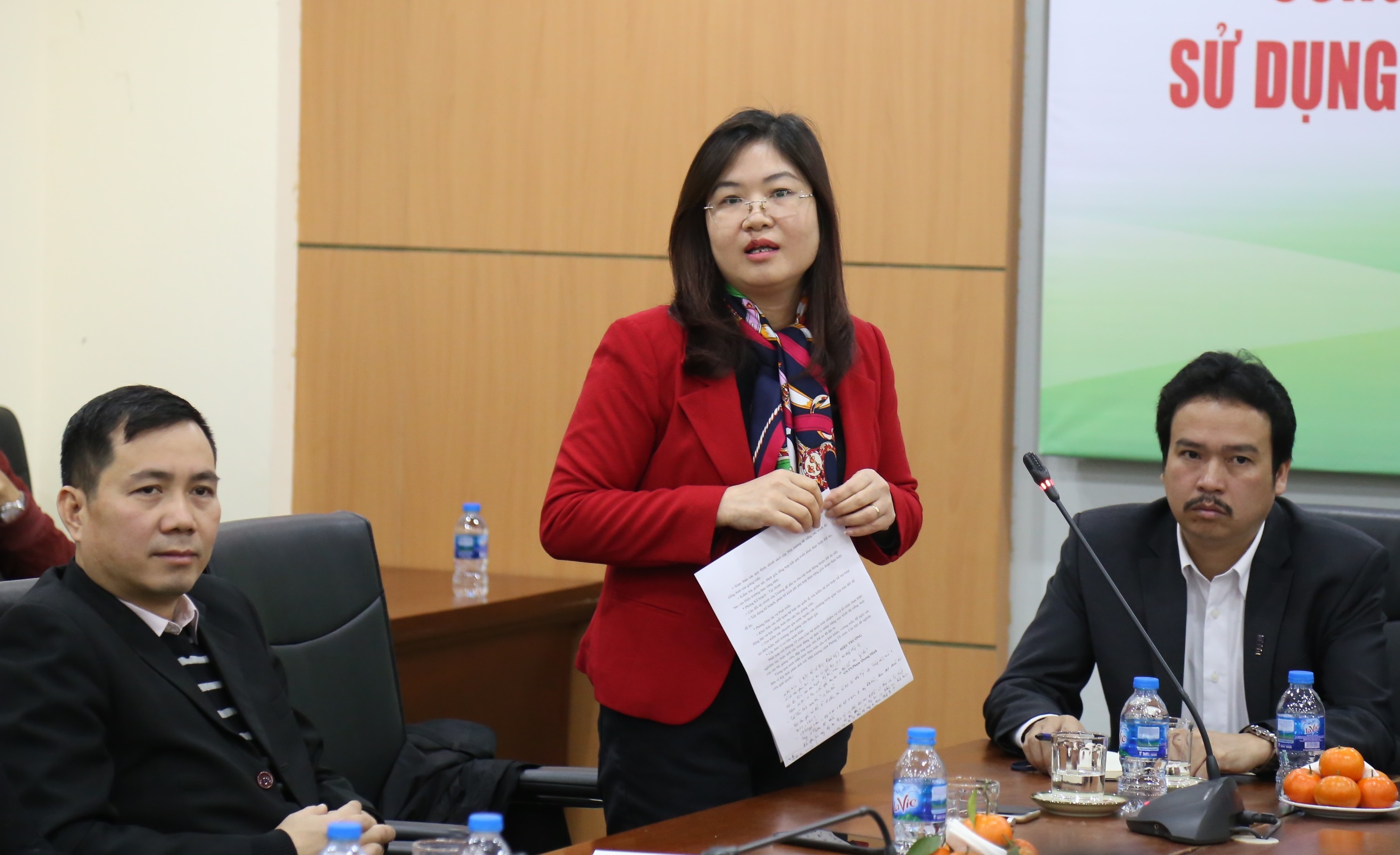
Proficiency in foreign languages is essential for your profession: there's no time to delay.
At the seminar, Professor Pham Quang Minh, Rector, shared information about the university's orientation and strategy for international integration in research and training. Annually, the university's staff publishes an average of over 600 scientific papers. In 2018 alone, the university had over 80 international publications, including 12 in high-impact journals. However, this number still falls short of the target set by Vietnam National University, Hanoi. To be among the top 100 universities in Asia, as the university aims to achieve, these indicators need to be significantly improved.
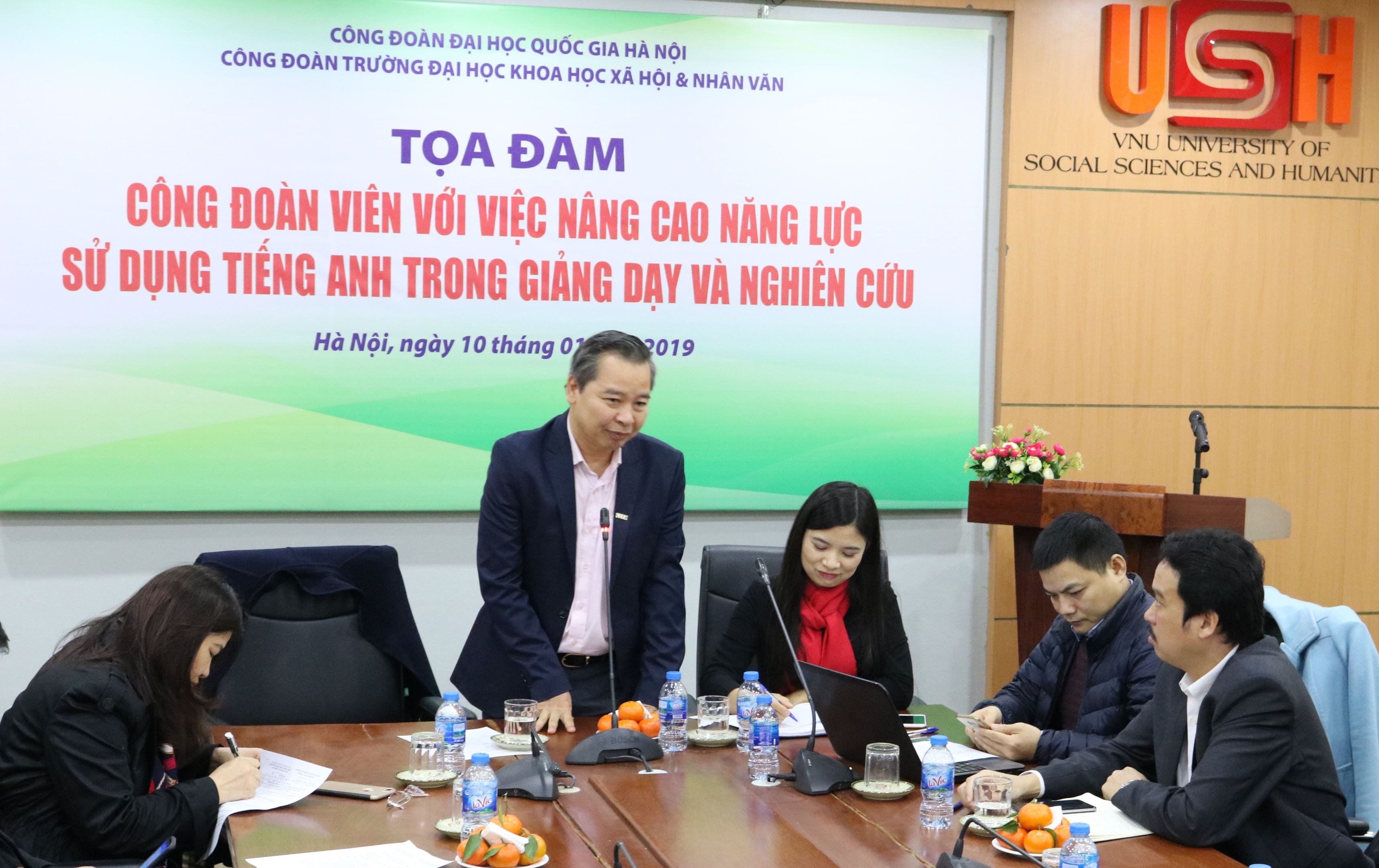
Professor Pham Quang Minh (Rector of the University) emphasized the need to improve the English language proficiency of faculty members in teaching and research; and also requested the University's Trade Union to have more activities to support its members.
To integrate internationally, the English language proficiency of the faculty in teaching and research is a crucial factor. Over the past period, the university has implemented diverse support activities such as organizing conversational and advanced English classes; establishing the Lunch Box English Club; providing support for faculty to attend overseas conferences and take the IELTS international English certificate exam; and supporting international publications with up to 250 million VND per book published by foreign publishers...
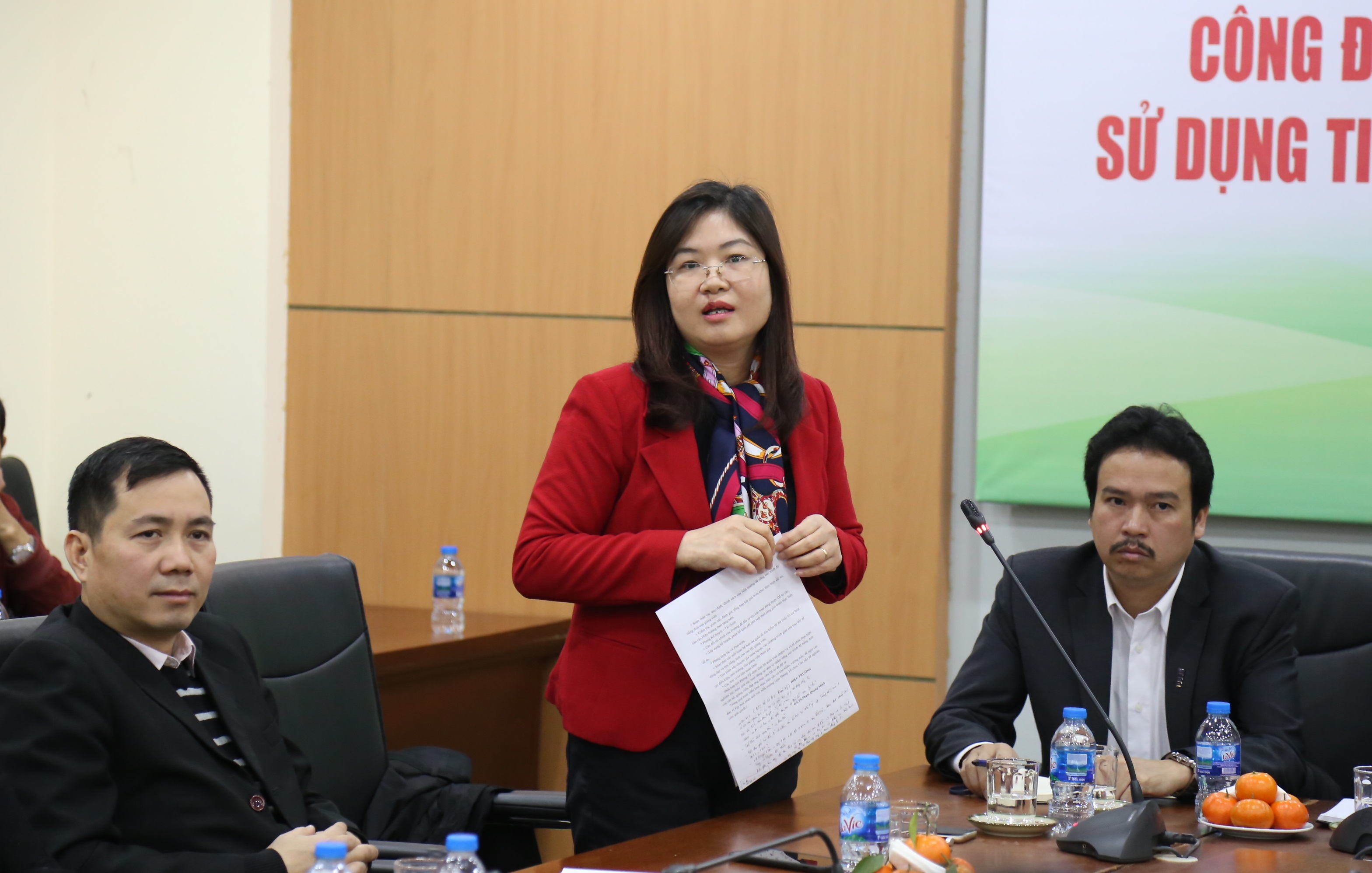
Dr. Ngo Thi Kieu Oanh (Chairperson of the University's Trade Union, Head of the Personnel Department) believes that the time has come to no longer delay the requirement for English proficiency among the staff.
In addition, the university organizes 30 to 40 international conferences annually on various fields, inviting many foreign scholars to lecture and give presentations. The number of foreign students studying in long-term and short-term training programs at the university is also increasing. The learning and research environment at the University of Social Sciences and Humanities has a distinctly international character, giving staff and students more opportunities to use English frequently and interact with foreign students and lecturers.
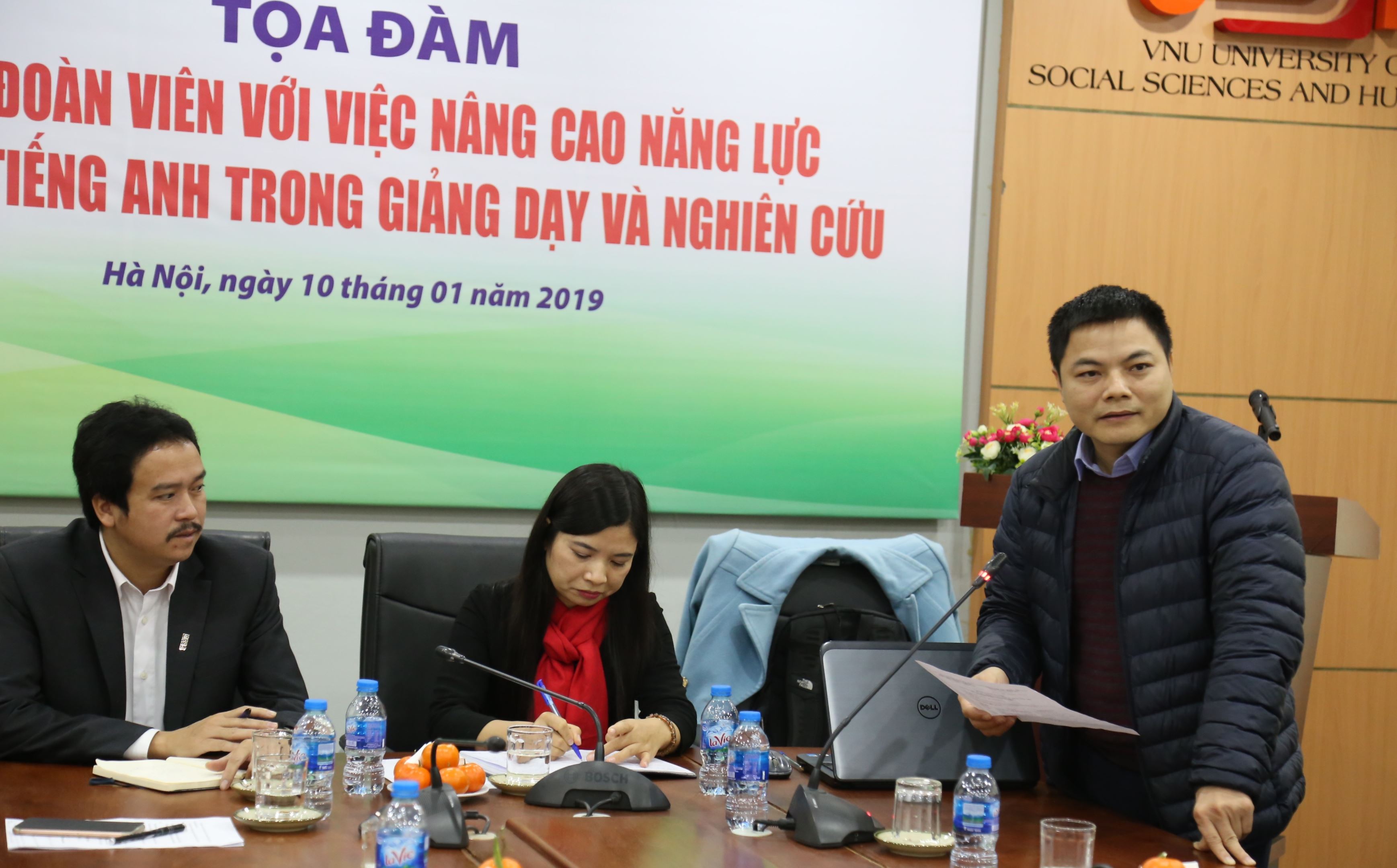
Assoc. Prof. Dr. Nguyen Van Luot - Deputy Head of the Professional Committee of the University's Trade Union
Assessing the current state of English proficiency among the faculty, Dr. Ngo Thi Kieu Oanh shared: 35.8% of the total 363 lecturers in the entire university are recognized as proficient in foreign languages in their professional fields according to the university's criteria. Proficiency in foreign languages for teaching and research will be a mandatory requirement for the university's staff, and this requirement cannot be postponed any longer.
In the near future, the Human Resources Department will propose the implementation of a project to improve English proficiency for staff, specifying a detailed roadmap and concrete goals for the required English language skills by 2020. The teaching staff will be divided into age groups: under 35, 35-45, and over 45. Each age group will have different mandatory English proficiency requirements. Simultaneously, recruitment processes will increasingly tighten foreign language standards from the outset to lay the foundation for improving the quality of the workforce in the future. Activities to support staff in improving their English language skills will be implemented more frequently.
We must overcome ourselves.
The discussion recorded the opinions and support of union members for the school's policy. These opinions not only helped identify difficulties but also shared personal experiences in "dealing" with English.
Associate Professor Dr. Nguyen Truong Giang (Deputy Head of the Anthropology Department) stated: The Anthropology Department, despite having a relatively small number of lecturers, boasts an impressive number of international publications compared to the university's average. This is because each lecturer sets personal pressure and goals for international publications, considering it a responsibility of those involved in teaching and research at the university. The department has also pioneered the use of English as a teaching tool in several subjects. In fact, it has been shown that not only lecturers who studied abroad can use English proficiently in their field, but even those who studied domestically are fully capable of meeting this requirement.
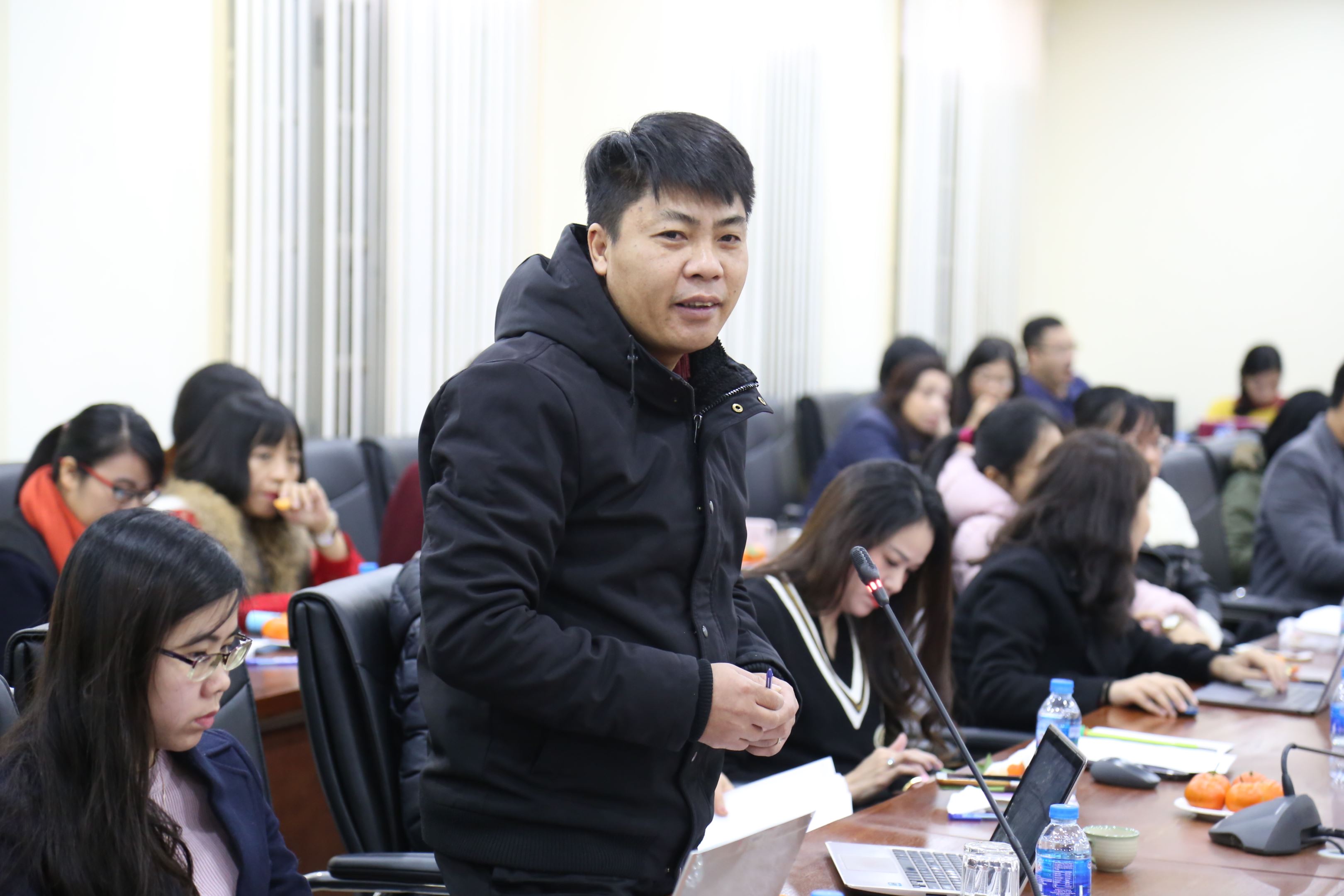
Assoc. Prof. Dr. Nguyen Truong Giang (Deputy Head of the Department of Anthropology)
Dr. Truong Thi Bich Hanh, a union member from the History Department, believes that there are significant challenges for lecturers who are no longer young in using English. Generally, lecturers face pressure in balancing their personal lives with numerous daily needs and responsibilities while simultaneously developing their professional skills within a limited timeframe. While most faculty members at the university are capable of using English, achieving proficiency in their professional field is not easy.
Dr. Truong Thi Bich Hanh also pointed out that remaining content with an "average level of proficiency" will lead to missed opportunities in the future. A consistently average level of English prevents lecturers from accessing higher-level professional projects with significantly better incomes than their current situation. Therefore, each individual needs to make a personal effort to break out of their comfort zone.
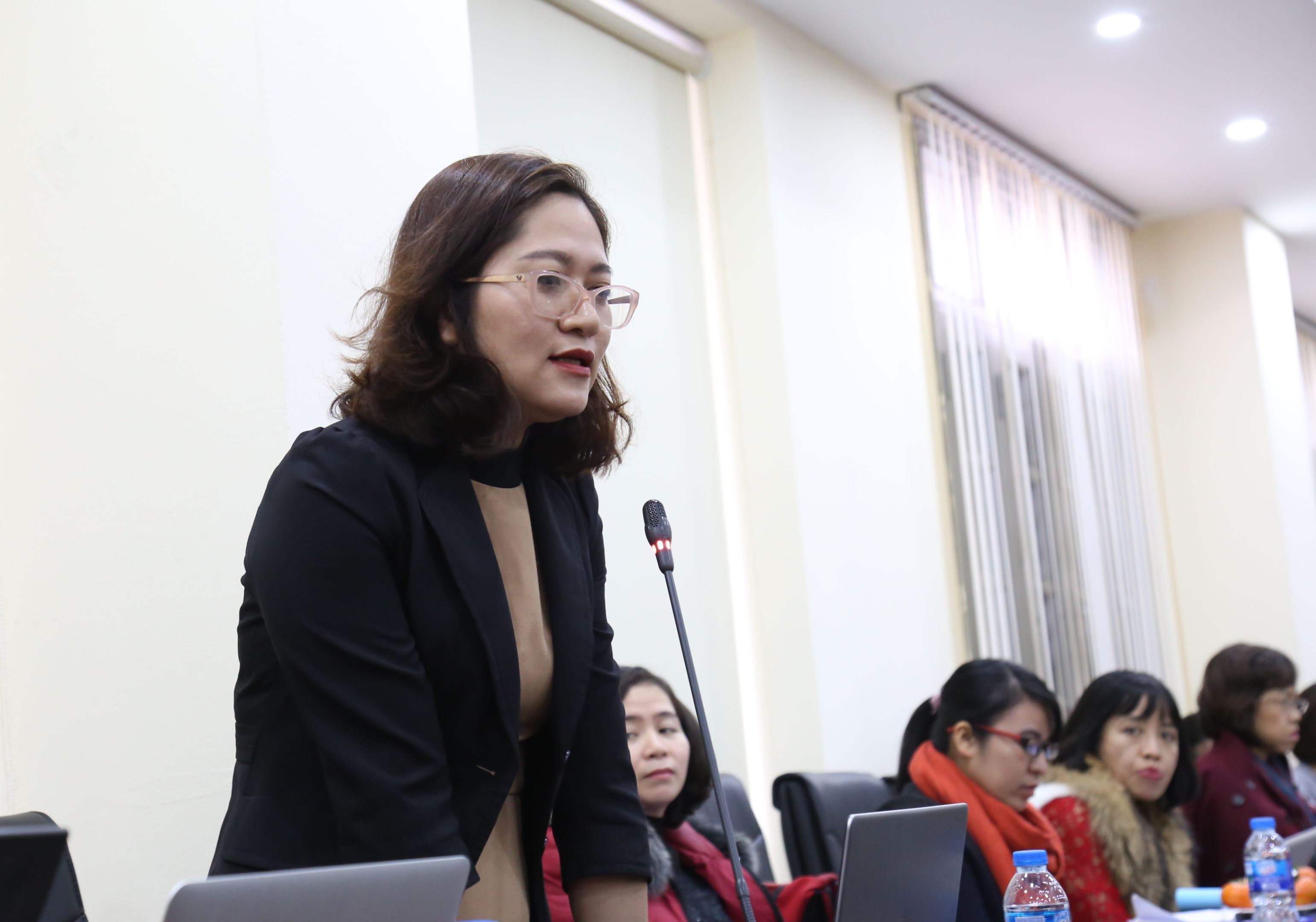
Dr. Truong Thi Bich Hanh (Department of History) warns of the risk that officials may be satisfied with an "average level" of English proficiency and miss out on future opportunities.
Sharing this view, Dr. Nguyen Thi Thu Thuy (Faculty of Tourism Studies) believes that studying domestically or abroad is not the main obstacle; what matters is whether teachers dare to face and overcome that challenge.
Union member Dang Hoang Ngan from the Psychology Department suggested that the University should have specific and strict regulations to reward and punish staff who fail to fulfill their commitment to learning English. Union member Nguyen Huong Ngoc (Literature Department) proposed opening intensive English courses for staff members, linked to specific professional groups, so that English proficiency is closely integrated with specialized knowledge. Union member Tran Dang Trung (Literature Department) suggested that the University should focus on developing internationally standardized learning materials to support teaching and research in English.
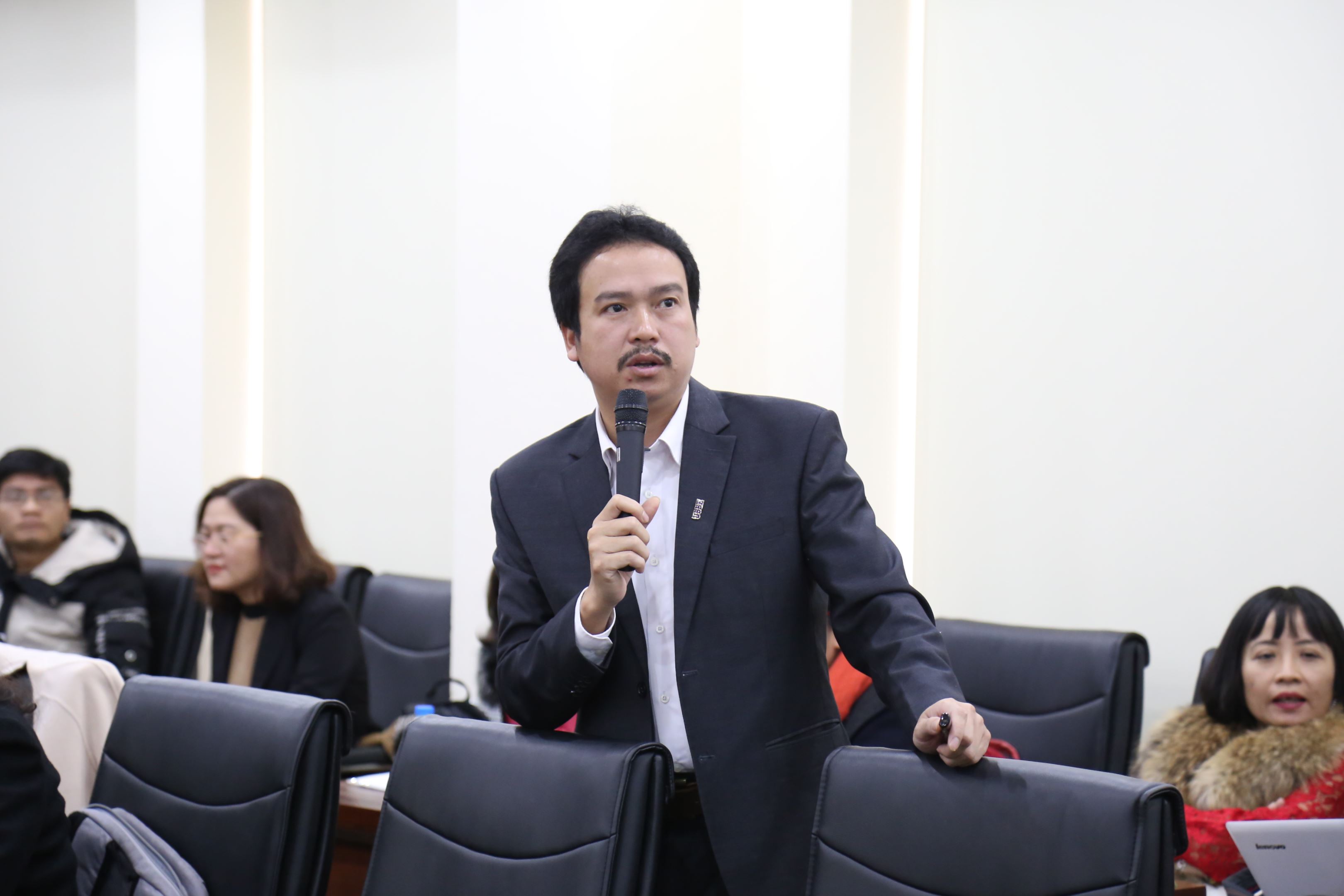
Comrade Dinh Tien Hieu - Head of the Professional Committee of the School's Trade Union
Dr. Do Thuy Lan (a union member from the History Department) stated that, given that the university's support cannot immediately meet all the learning and research needs of its staff, each individual should strive to improve their English proficiency, both to contribute to the university's overall development direction and for their own benefit. Foreign language skills must be developed in conjunction with professional research capabilities. Foreign languages are tools that enable each lecturer to update information and exchange academic knowledge with world experts in their specific field. Furthermore, the University's Trade Union and its departmental unions can build a network of union members who share common interests and desires to share their experiences in learning and using foreign languages, where experienced members can guide and assist younger members.
Author:Thanh Ha. Photo: Cong Minh
Newer news
Older news